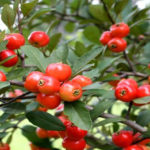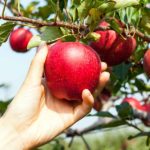Beware of the false prophets, who come to you in sheep’s clothing, but inwardly are ravenous wolves. You will know them by their fruits. Grapes are not gathered from thorn bushes nor figs from thistles, are they? So every good tree bears good fruit, but the bad tree bears bad fruit. A good tree cannot produce bad fruit, nor can a bad tree produce good fruit. Every tree that … [Read more...] about The Fruit of the Kingdom
fruit
The Fruit You Get
"For when you were slaves of sin, you were free in regard to righteousness. But what fruit were you getting at that time from the things of which you are now ashamed? For the end of those things is death. But now that you have been set free from sin and have become slaves of God, the fruit you get leads to sanctification and its end, eternal life." (Romans 6:22) Recently … [Read more...] about The Fruit You Get
The Fruit of Your Life
"For when you were slaves of sin, you were free in regard to righteousness. But what fruit were you getting at that time from the things of which you are now ashamed? For the end of those things is death. But now that you have been set free from sin and have become slaves of God, the fruit you get leads to sanctification and its end, eternal life. For the wages of sin is death, … [Read more...] about The Fruit of Your Life
The Fruit of Repentance
"But when he saw many of the Pharisees and Sadducees coming to his baptism, he said to them 'You brood of vipers! Who warned you to flee from the wrath to come? Bear fruit in keeping with repentance. And do not presume to say to yourselves, "We have Abraham as our father," for I tell you, God is able from these stones to raise up children for Abraham. Even now the axe is laid … [Read more...] about The Fruit of Repentance



